Your work, The Kitchen, is based on cosmic truth. Do you believe in the idea of a truth/the truth?
Well, you know, this is a very difficult question to answer. The cosmic truth, at least for us artistes, is a sort of experience that happens when the inspiration to create some work is born. Now, this is followed by the entire process of cosmic cooking. And although the cooking happens, I feel it is very difficult for a person like me to experience it.
Why is that so?
I mean it is difficult for a flawed human being like me to experience anything like that... It needs some emptiness and space; you know, the vessel needs to be really empty… And that is a very difficult state to be in. That is what I tried to do with The Kitchen. But to be very honest with you, although we were hoping to explore this idea with The Kitchen, I must admit, I don’t think we have been able to. The Kitchen was just an attempt, and still far from the experience of the actual idea. I think the idea just remained an idea…
From your own exploration, can you distil that idea for us?
You know, this whole idea came up when we visited Rumi’s kitchen. In that context, there were two or three levels of cooking that were happening. The idea is really to make the effort to go through the whole process of cooking, consciously. Now, this depicts the larger cosmic evolution, so to say, and we are only a small grain in the whole scheme of things. The process is about how we meet other grains and be a part of the whole dish… I personally believe, at least in my case that grace has to descend upon you to be able to create something. This stands true not only with regard to creating something, but also just to be a good human being, and to evolve as a human being. It is quite a complicated course. And the process is literally like cooking where you will get boiled, trashed, fried… I believe that we are an ingredient of some sort, and have to go through this process, and in turn play a unique part in the world. This is my belief. I could be totally wrong about it.
How did you translate a metaphysical concept like ‘cooking of the soul’ into a physical reality with movement and sound?
Again, to be honest, I tried to do this in a few ways, and my ways were very literal… I don’t think they worked.
You know when you have only started going somewhere, and something starts taking you somewhere else, to places where you may want to go, but you recognise that it was not you who had planned to go there... You are being led and guided, and just the fact that you feel the guidance at that point is blissful
Why do you think so? Do you feel that some essence of the concept got lost in translation?
You see, I put this together with my understanding of the idea. I have come to realise that my personal experience and understanding about the concept is rather limited. After all these years I can say that I was not really qualified to touch upon something like this.
Is this merely your evaluation of the work?
Yes, this is my evaluation of the work!
Do you think if you re-did the whole thing, you would do it differently?
Yes, if I re-did the whole thing, something could possibly happen. It is a lot of time and money, though.
How did you first explain the concept to the team of The Kitchen? Considering the idea is subject to individual perception, could each of their individual understanding also have impacted the way the production unfolded?
The music worked very well, naturally. The sound that the Mizhav produced, along with the score that we created, fell in place. As far as the actors are concerned, they are all very close to me, and we all have an idea of the concept of human evolution, and the individual spiritual paths that we are undertaking. I really feel it fell apart because of my own lack in skill in being able to translate the idea. I must take full responsibility for it.
When you are in the process of creation, you realise that it is a very difficult journey, and you wait for that point where things start to flow. That is a very beautiful moment… It is a moment when you feel you have arrived, and that is when the work reaches its fulfillment. I don’t think that happened during The Kitchen for me. There were just too many external pressures and deadlines. I was caught up in too many factors, and that was hard for me to handle.
How would you define that moment of arriving? Are you always able to recognise it distinctly?
It is a pretty tangible feeling. But I must tell you that it happens to me very seldom, very few and far between. It does not happen all the time, but when it happens, you can actually experience it. You can experience the joy while you are doing it… You know when you have only started going somewhere, and something starts taking you somewhere else, to places where you may want to go, but you recognise that it was not you who had planned to go there... You are being led and guided, and just the fact that you feel the guidance at that point is blissful.
How did the audience respond to The Kitchen, again considering the idea is subject to individual perception?
The reactions were very mixed. Very individual. Very extreme. There were people who completely got it; these are people who are going through similar journeys, perhaps. But there were also people who had absolutely no clue about what we were doing. I also feel this idea was too personal. I am someone who believes that if you really go into the heart of the personal, you reach the universal. I don’t think I could touch the core in this case.
Did these reactions also give you a sense of the state of the world, at this point in time?
No, no. I am not qualified enough to make a judgment like that. I am currently trying to figure out things for myself. It is hard for me to make a judgment, especially vis-à-vis my work. I think gone are the days when I was younger and could do something, and say, “The audience doesn’t get it”, and let my anger out at them. Then I also think that there are certain things that I do that make a deep connection with the audience, and then why and how does that happen. I think the exercise is to really look within myself. It has nothing to do with the audience.
You have worked deeply with Shakespeare, Rumi and other Indian folk literature. What is the mark these texts have left on your own mind? Do they ever surface on your mind when you are on the crossroads, advising you?
When I am writing something, or creating something, for instance, and I encounter a roadblock, I try to think what Shakespeare would have done in this instant. What would be the thing that should happen? For instance, when I go through a piece of folk music, and then go back to Shakespeare, I wonder where that piece of music is taking me in the context of Shakespeare. So there is a kind of spillover from all these experiences that you have had with all these texts. They all kind of crossover, sometimes consciously, sometimes unconsciously, sometimes subconsciously… And it is best when it happens subconsciously, and that happens when things are flowing. The conscious has its limitations. There is only so much of what you know, and what you know is very little.

In a performance, there is something that hooks your gut, and that’s what pulls you in, and you experience something really beautiful. As a theatre director, you are then inspired to share this experience with as many people as you can
Subconsciously, you have been speaking a lot about lettings things flow and of things taking their own course. Do you always allow that in your scheme of things, or are there times when you get on the driver’s seat?
It is a very tedious, time-consuming process, you know. For instance, what I am working on right now, I have been working on for the last two-and-a-half years. And I must confess that there are only bouts of these flowing episodes that take place. Otherwise, you have to push, do and go ahead and work. However, when the genie sits on you and helps you create, just that state of being is so uplifting. That is when you feel like a million dollars. You have got to be more humble to receive it more. And you have to be grateful that it’s happening. I don’t try to hold onto it. You cannot hold onto something. When it happens, it just happens. The point is that it does not happen to me all the time. I really wish it did! I know that geniuses make that happen, constantly.
Music is a significant aspect of your work. What is your relationship with it?
I think music has much more than words! Music affects more strongly than words. That is why I want to do more with music.
Thanks to you, obscure parts of the globe have been exposed to ancient Indian folk. What attracts you to its sound?
I don’t know. It is a very natural attraction. It’s not just a peripheral attraction; it is an attraction that goes very deep. In a performance, there is something that hooks your gut, and that’s what pulls you in, and you experience something really beautiful. As a theatre director, you are then inspired to share this experience with as many people as you can.
You started your journey in theatre with literature, moved to Indian folk, and have now explored a metaphysical concept with The Kitchen. Is this also a reflection of the evolution of your own soul?
It should be, no? It should be! I mean, what else? Why would anyone be doing anything in their lives if it is not about what they are going through, or about what they want to go through? I think as artistes we have a vehicle to explore this. Of course, you can search and seek through anything that you are doing, but as artistes you have more tools to do that. That is why you feel grateful and lucky to have the luxury to explore, experience, analyse, re-visit, all of that. It is a very privileged place to be in.
The conscious has its limitations. There is only so much of what you know, and what you know is very little
How would you want your work to affect the world?
Right now I am trying to focus on work that can impact the well-being of a community. I also realize that the attempt cannot be only to benefit socially, it also has to be an aesthetic experience. That is when the experience can be complete, and whole!
Interviewed by Payal H Chhabria
1 comments Comments











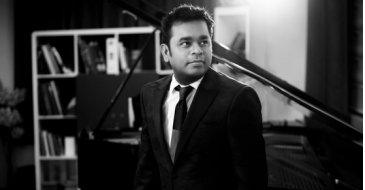
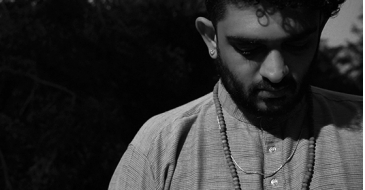
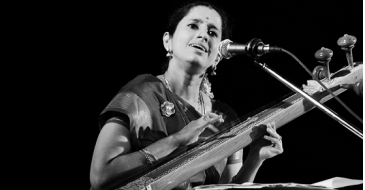
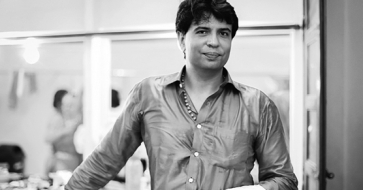
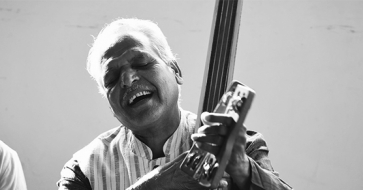
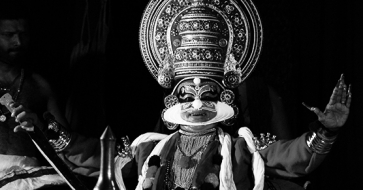
Shashi
September 24, 2017